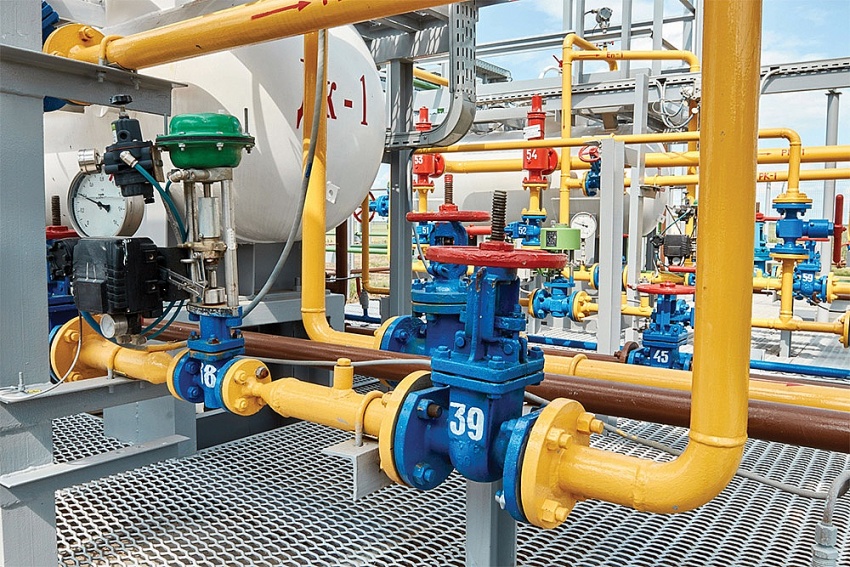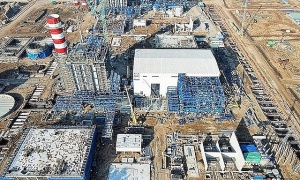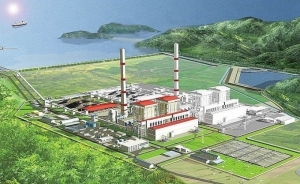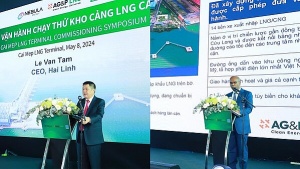Lackadaisical LNG progress hinders plans
At a meeting in May to push liquefied natural gas (LNG) projects ahead, Minister of Industry and Trade Nguyen Hong Dien voiced his concern that most ventures were still 9-12 months behind schedule. If this continues, it will severely affect energy security and disrupt the implementation of the Power Development Plan VIII (PDP8).
 |
| Two LNG-to-power projects are currently being built in the south of the country, Photo: Shutterstock |
“Localities and investors must report their projects to the government and the ministry before June 25. Localities need to rely on the investor’s committed progress to urge and handle the investor’s responsibilities. There will be strict sanctions against those who are behind schedule, and we may even consider withdrawing them,” said Minister Dien.
To Xuan Bao, director general of the Electricity and Renewable Energy Authority under the Ministry of Industry and Trade (MoIT), said that most of the gas-to-power projects in the process of investment preparation had not yet made much progress, especially at Ca Na, Nghi Son, and Quynh Lap, with a total capacity of 4,500MW, which had not yet selected investors.
“For instance, Hai Lang phase 1 in Quang Ninh province has not yet completed their feasibility study,” Bao said. “Bac Lieu, Hiep Phuoc phase 1, and O Mon 2 have not completed power purchase agreement (PPA) negotiations, while the Long An I and II projects have not completed the investment policy adjustment work or feasibility studies.”
According to the PDP8, the total capacity of gas power plant projects invested in construction and put into operation by 2030 is 30,400MW. Of which, the total capacity of gas power plants using domestically exploited gas is 7,900MW, and the total capacity of gas power plants using LNG is 22,500MW. Currently, problems in LNG gas power schemes are mainly related to negotiating and power purchase agreements (PPA) signing contracts, site clearance, grid connection agreements, incentives, and investment guarantees.
Located in the central province of Quang Tri, the $2.3 billion Hai Lang LNG project (phase 1), funded by a consortium of T&T Group, Korea Gas Corporation, Hanwha Energy Corporation, and Korea Southern Power, has so far completed the approval of agreements on clean water supply, power supply, documents on supplying construction materials, and the location of construction material waste dumping sites. However, some 13 agreements have not yet been agreed upon by related authorities.
To ensure progress, Quang Tri People’s Committee has proposed content on the agreement to connect Hai Lang LNG phase 1 to the national power system as well, as PPA contracts.
Faced with problems in the process of LNG projects, the MoIT has proposed to establish an inter-sectoral working group of the government. According to the proposal put forth, the working group will focus on researching and proposing mechanisms, policies, and urgent and important issues, and propose amendments to legal documents, ensuring synchronisation and feasibility, and submitting to authorised agencies for consideration and decision.
Lam Nguyen Hoang Thao, foreign associate at Russin & Vecchi told VIR, “It is critical that the government provides clear guidance as to its needs, so that problems can be managed around these needs. The government and power producers can then harmonise benefits and share any risks, which is very necessary in a working PPA.
The MoIT last week adopted a electricity price framework for LNG power plants, with the maximum price at 10.79 US cents per kWh., exclusive of VAT.
Currently, Vietnam has no LNG-to-power projects in operation. The first two ventures in Vietnam, Nhon Trach 3 and Nhon Trach 4, are currently being built in the southern province of Dong Nai.
 | Negotiations over payment agreement for LNG power stuck in deadlock Negotiations between Vietnam Electricity (EVN) and investors for a power purchase agreement (PPA) for liquified natural gas (LNG)-to-power projects have once again stalled. |
 | Doosan wants to develop LNG project South Korea's Doosan Group is interested in working with Vietnam Electricity (EVN) to develop the liquefied natural gas (LNG) Quang Trach 2 project and other renewable energy projects. |
 | Cai Mep LNG Terminal to start commercial operations in September 2024 AG&P LNG, a subsidiary of Nebula Energy, along with its partner, Hai Linh Co., Ltd., a prominent petroleum product import terminal and trader, have announced the start of the commissioning of Cai Mep LNG Terminal. |
What the stars mean:
★ Poor ★ ★ Promising ★★★ Good ★★★★ Very good ★★★★★ Exceptional
Related Contents
Latest News
More News
- $100 million initiative launched to protect forests and boost rural incomes (January 30, 2026 | 15:18)
- Trung Nam-Sideros River consortium wins bid for LNG venture (January 30, 2026 | 11:16)
- Vietnam moves towards market-based fuel management with E10 rollout (January 30, 2026 | 11:10)
- Envision Energy, REE Group partner on 128MW wind projects (January 30, 2026 | 10:58)
- Vingroup consults on carbon credits for electric vehicle charging network (January 28, 2026 | 11:04)
- Bac Ai Pumped Storage Hydropower Plant to enter peak construction phase (January 27, 2026 | 08:00)
- ASEAN could scale up sustainable aviation fuel by 2050 (January 24, 2026 | 10:19)
- 64,000 hectares of sea allocated for offshore wind surveys (January 22, 2026 | 20:23)
- EVN secures financing for Quang Trach II LNG power plant (January 17, 2026 | 15:55)
- PC1 teams up with DENZAI on regional wind projects (January 16, 2026 | 21:18)

 Tag:
Tag:




















 Mobile Version
Mobile Version